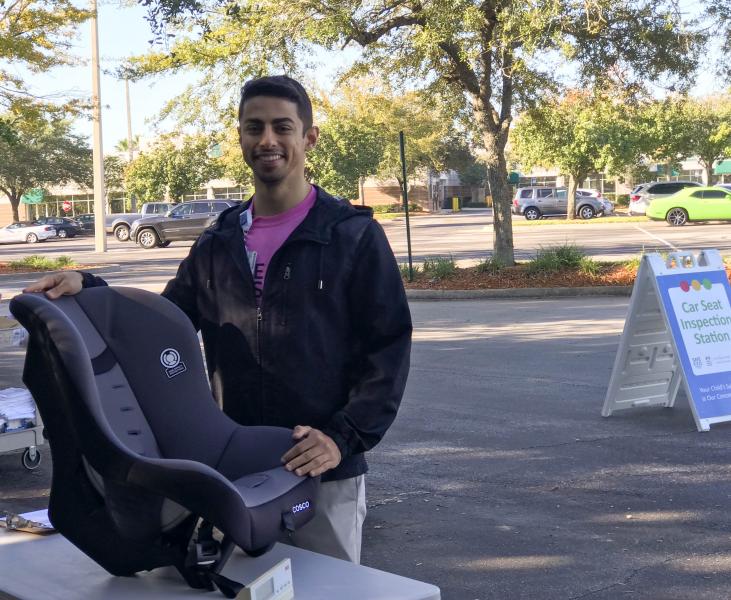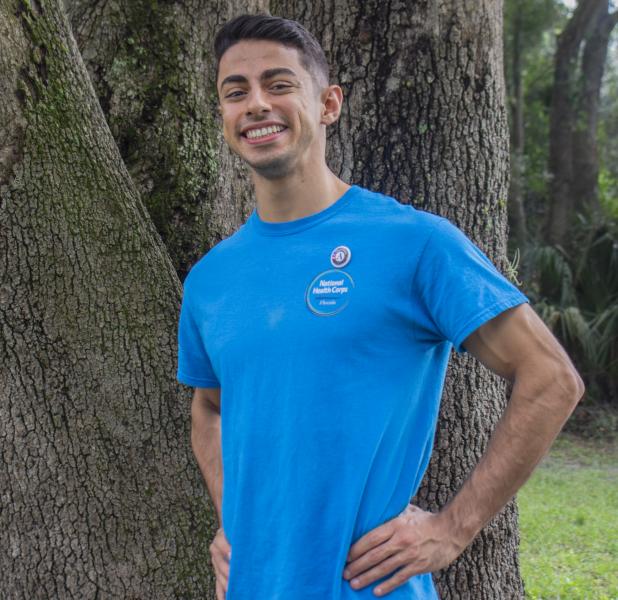Building A Safer Community For Kids
 I walk through a hallway within The Players Center for Child Health, decorated by children’s mosaics and turn left into what is known as "Cubbieland." To my immediate left is my cubicle, followed by seven other people in cubicles each spouting the lovely welcome of “Good morning.” I set down my backpack, take my seat and ask myself, “How am I going to build a safer community for kids?” As a recent college graduate it won’t be easy, but as a National Health Corps Florida Americorps member I knew just how to serve:
I walk through a hallway within The Players Center for Child Health, decorated by children’s mosaics and turn left into what is known as "Cubbieland." To my immediate left is my cubicle, followed by seven other people in cubicles each spouting the lovely welcome of “Good morning.” I set down my backpack, take my seat and ask myself, “How am I going to build a safer community for kids?” As a recent college graduate it won’t be easy, but as a National Health Corps Florida Americorps member I knew just how to serve:
Educating both children and parents.
On my desk is a long list of emergency room visitors from this weekend who lacked health insurance. I pull up my online database, take a deep breath and commence the cold calling. All 25 patients without insurance get a call from me as I offer my Florida KidCare and Medicaid enrollment service. A few parents accept and others deny, while the rest claim they don’t qualify for such public service. This is where I educate. What many people don’t know is that they can be eligible for Florida KidCare while not qualifying for Medicaid. The income threshold to provide children with Florida KidCare is much higher than that of Medicaid. After dispelling this misconception on the phone and educating on the benefits of Florida KidCare, I schedule an appointment with parents and meet to begin the application process.
On Tuesday morning, I walk out into our parking lot to perform car seat checks with my coworkers, where we educate families on car seat installation and safety. To become a car seat technician, my coworkers and I enrolled in a 4-day long course that finalized with a live car seat check assessment. Some of you may be wondering “what’s the point of having car seat checks?” Here’s food for thought: 93% of carriers, car seats and seat belt arrangements arriving at our station are incorrectly installed or misused. As a technician, my role is to ensure caregivers leave knowing how to install carriers, car seats, and belt arrangements in a way that best suits their child. In the end, each child leaves as safe or safer than they arrived.
Come Wednesday afternoon, I jump into the driver’s seat of my Camry and ride with my coworker, Carey Smith, to teach a unique Asthma Education program titled “A2 Asthma Action” at Otis Mason Elementary School. Throughout our course, we’ve defined asthma, discussed asthma warning signs and triggers, and explained medication safety and utility. Today is the last day of our curriculum, and the children are excited to answer questions. With each answer comes the possibility of earning a prize from the prize pouch. Before they leave our classroom, they define asthma, list warning signs, and triggers, and present their knowledge on medication safety all by heart. Even more, each child leaves with a sense of unity, knowing they aren’t alone in their lifelong journey with asthma.
Every day at The Player’s Center for Child Health my team and I take the initiative to create a healthier, safer community. Through Florida KidCare enrollment services children secure the opportunity to access healthcare; with car seat checks, caregivers are educated on car seat installation and child transportation; and in A2 Asthma Action, children gain the knowledge and support system necessary to lead a healthy life. At The Player’s Center, we like to say that no service day is the same. We keep it that way through daily outreach and making sure each bright and young smile is here to stay.

This blog post was written by NHC FL member, Jason Dossantos.
Jason serves at THE PLAYERS Center for Childhealth at Wolfson Children's hospital as a Care Coordinator.